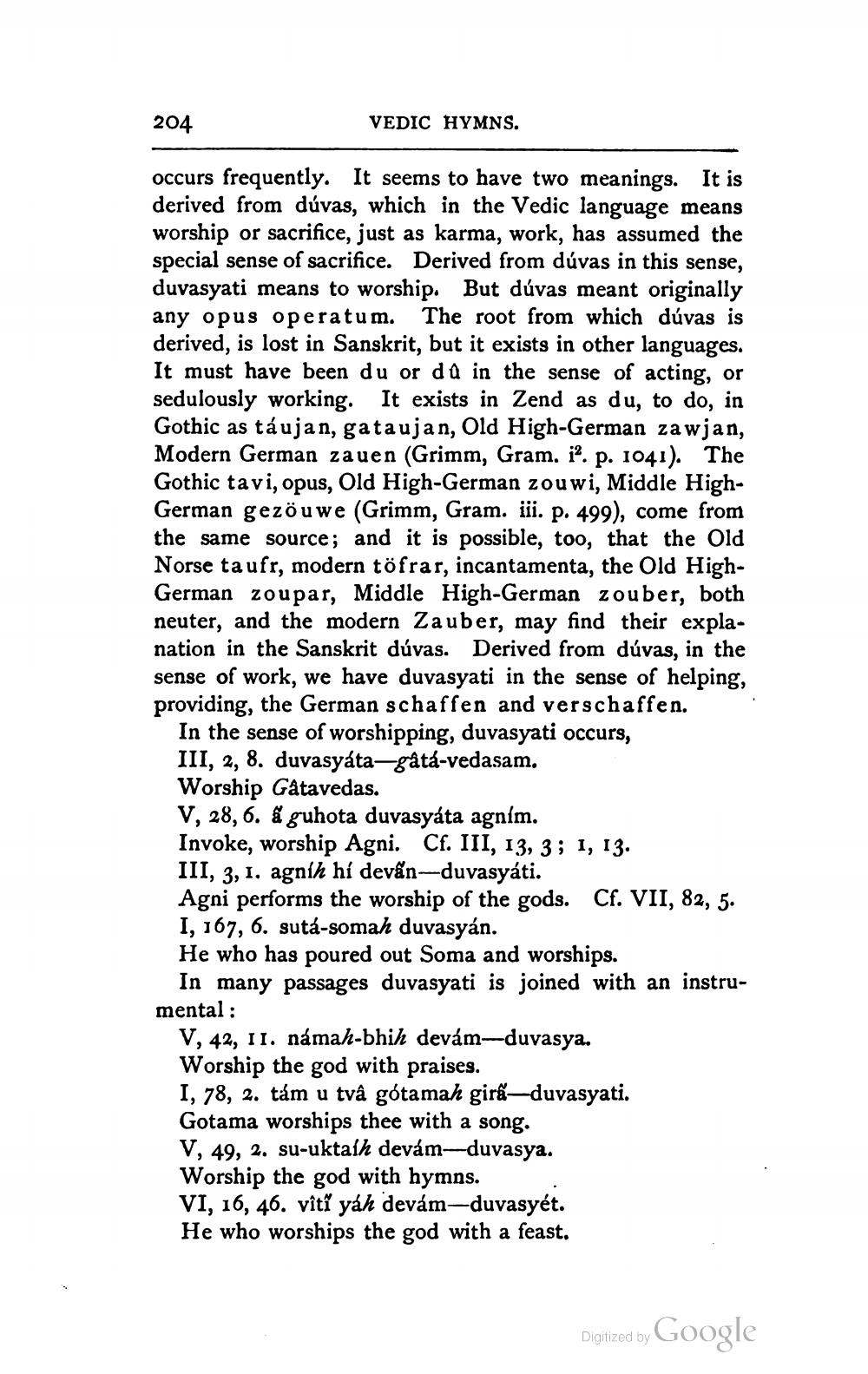________________
204
VEDIC HYMNS.
occurs frequently. It seems to have two meanings. It is derived from dúvas, which in the Vedic language means worship or sacrifice, just as karma, work, has assumed the special sense of sacrifice. Derived from dúvas in this sense, duvasyati means to worship. But dúvas meant originally any opus operatum. The root from which dúvas is derived, is lost in Sanskrit, but it exists in other languages. It must have been du or da in the sense of acting, or sedulously working. It exists in Zend as du, to do, in Gothic as táujan, gata ujan, Old High-German zawjan, Modern German zauen (Grimm, Gram. il. p. 1041). The Gothic tavi, opus, Old High-German zouwi, Middle HighGerman gezöuwe (Grimm, Gram. iii. p. 499), come from the same source; and it is possible, too, that the Old Norse taufr, modern töfrar, incantamenta, the Old HighGerman zoupar, Middle High-German zouber, both neuter, and the modern Zauber, may find their explanation in the Sanskrit dúvas. Derived from dúvas, in the sense of work, we have duvasyati in the sense of helping, providing, the German schaffen and verschaffen.
In the sense of worshipping, duvasyati occurs, III, 2, 8. duvasyáta-gatá-vedasam. Worship Gatavedas. V, 28, 6. a guhota duvasyata agnlm. Invoke, worship Agni. Cf. III, 13, 3 ; 1, 13. III, 3, 1. agnih hi devấn-duvasyati. Agni performs the worship of the gods. Cf. VII, 82, 5. I, 167, 6. sutá-somah duvasyán. He who has poured out Soma and worships.
In many passages duvasyati is joined with an instrumental :
V, 42, 11. námah-bhih devam-duvasya. Worship the god with praises. I, 78, 2. tám u tvâ gótamah girã-duvasyati. Gotama worships thee with a song. V, 49, 2. su-uktaih devám-duvasya. Worship the god with hymns. VI, 16, 46. viti yah devám-duvasyét. He who worships the god with a feast.
Digitized by
Digized by Google




